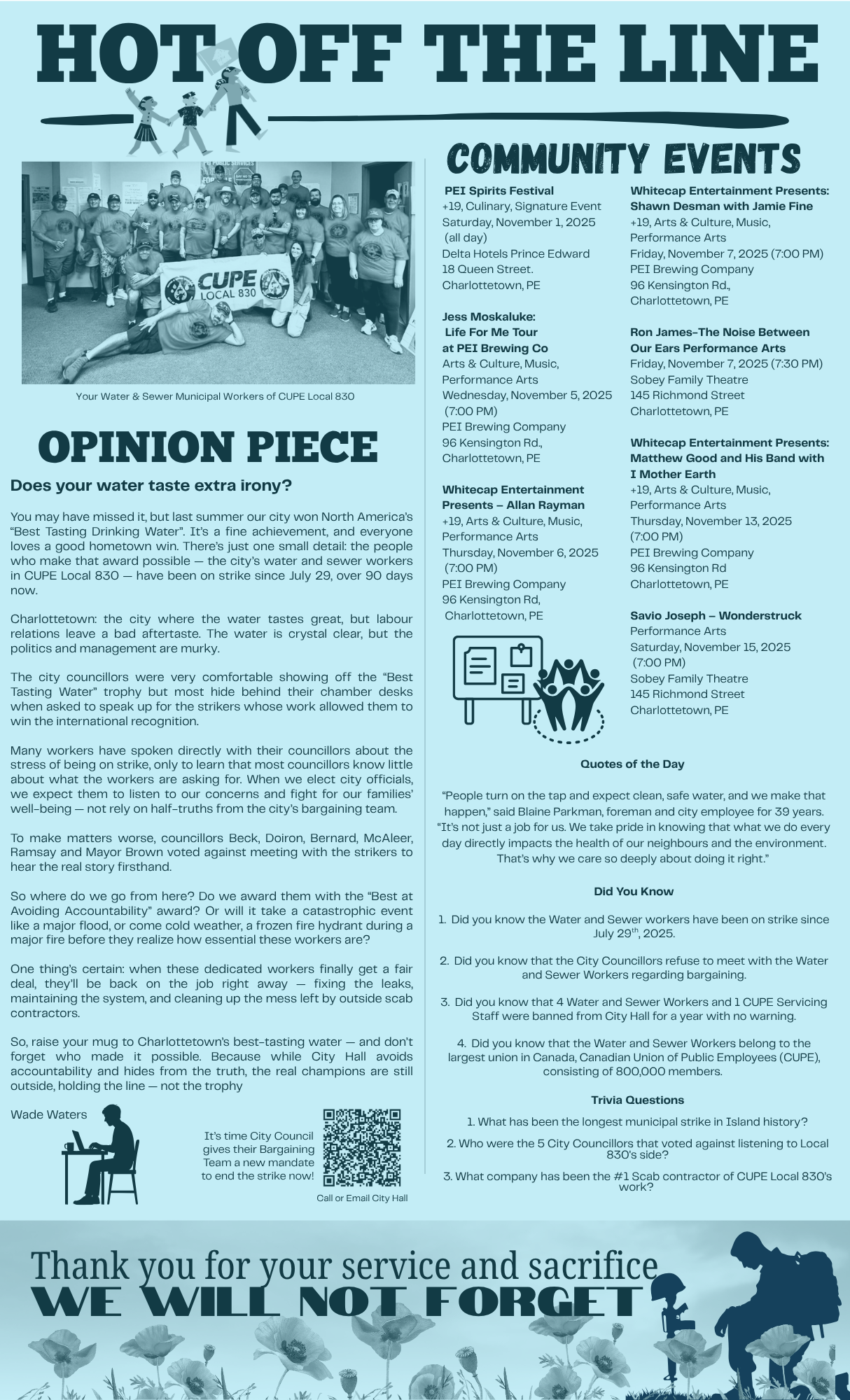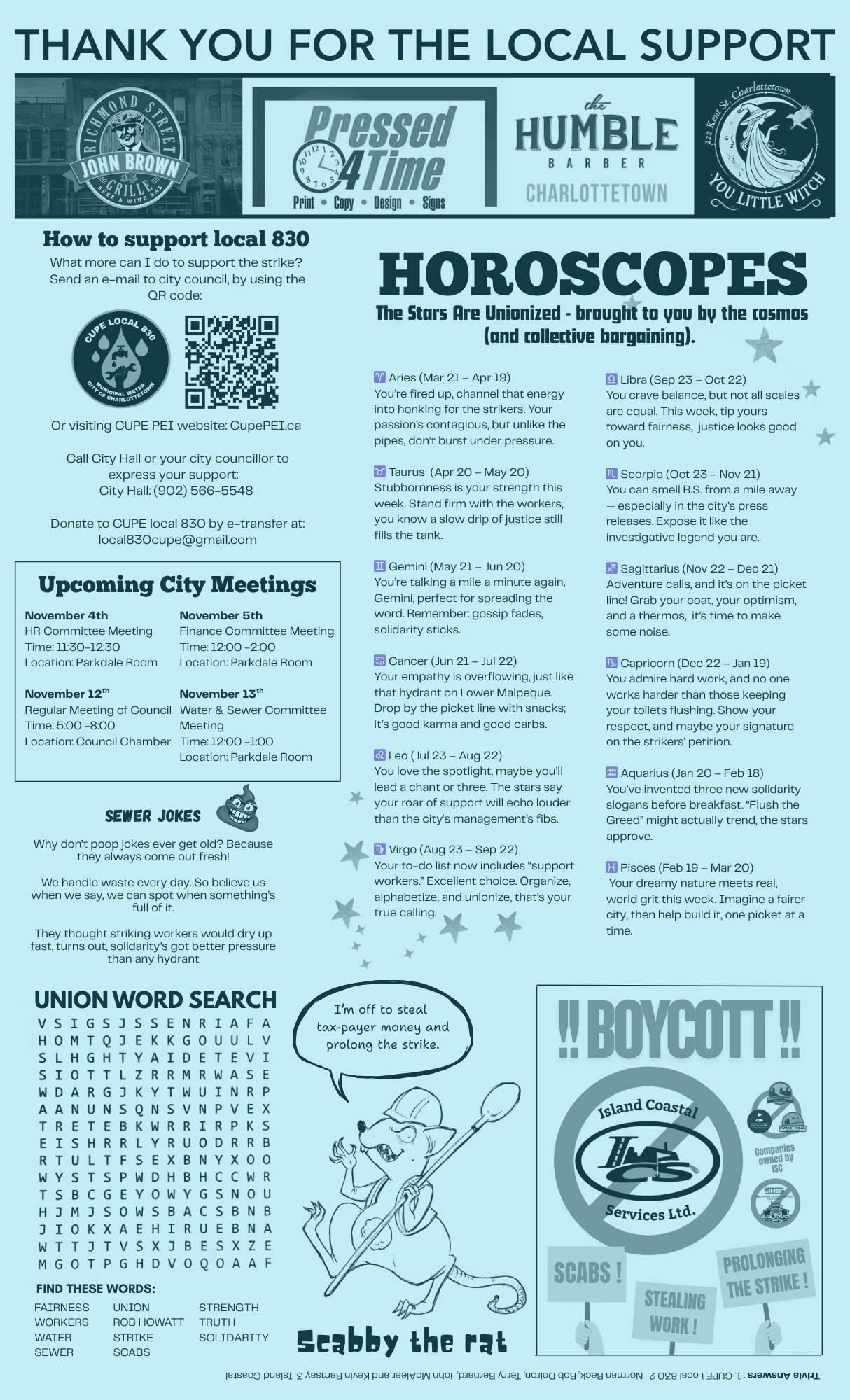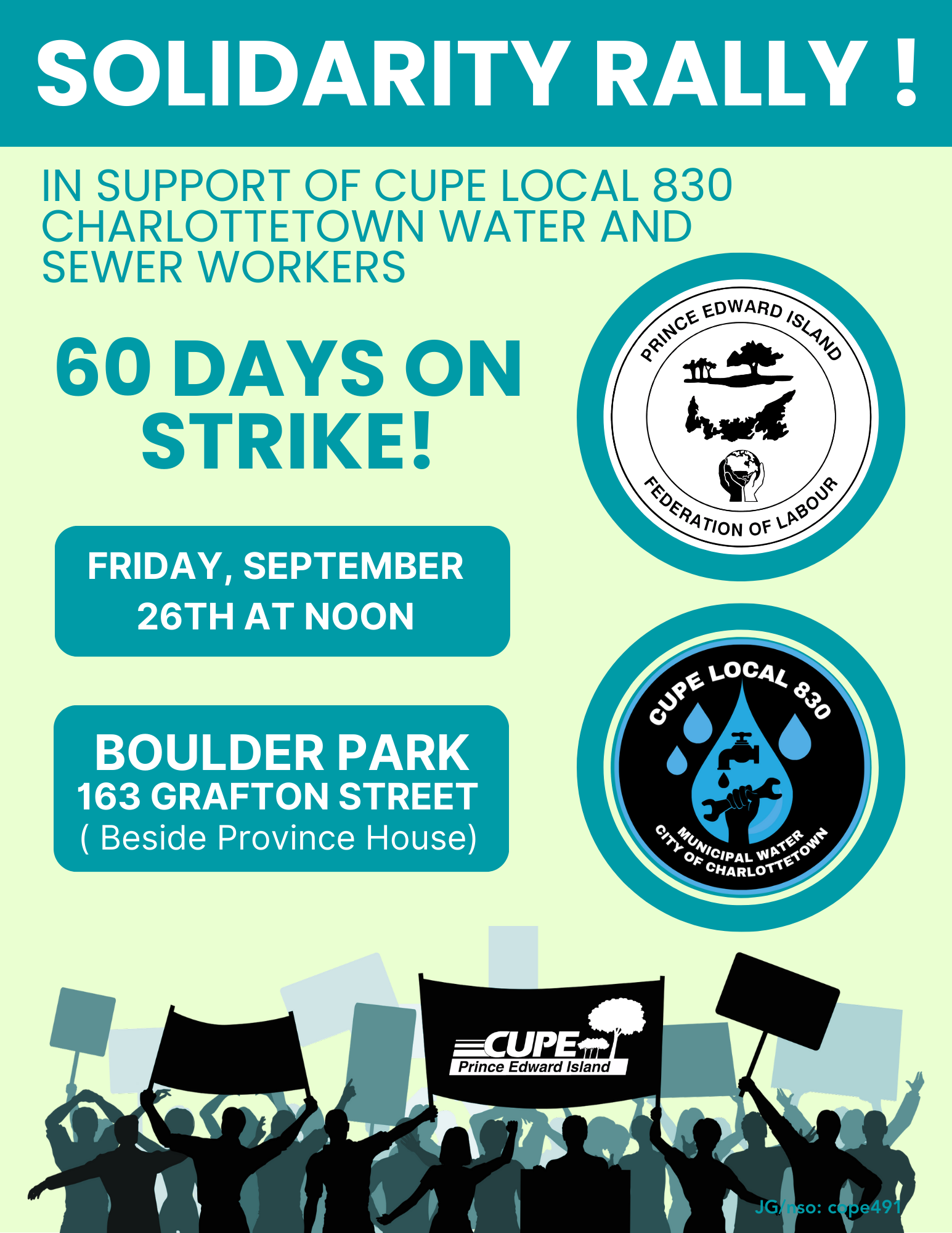In April 2024, the Canadian Parliament finally passed legislation banning the use of replacement workers during strikes or lockouts in federally regulated sectors. For unionized workers, this is a historic victory after a long, hard-fought struggle — proof that the labour movement can truly change the rules of the game.
The struggle to ban the use of replacement workers was crucial, as scabs continued harming striking workers on picket lines across the country. For CUPE, Canada’s largest union, this fight was a top priority.
Indeed, employers in federally regulated sectors — telecommunications, ports, rail and air transport — never hesitated to bring in scabs during a strike or a lockout, inevitably tipping the balance of power in their favour.
For 20 years, unions had been calling for federal legislation to ban the use of scabs. Conservative and Liberal governments repeatedly refused to act, under pressure from employers who strongly opposed such a law. In 2016, the two political parties even joined forces to defeat a bill introduced by the New Democratic Party. Yet anti-scab legislation had been in place in Quebec since 1977 and in British Columbia since 1993.
Things shifted after the 2021 election: the Liberal minority government needed NDP support to stay in power. In March 2022, the NDP and the Liberal Party negotiated a confidence and supply agreement that allowed the NDP to push forward its priorities — and this time, the adoption of anti-scab legislation was one of the conditions.
On September 15, 2022, 81 longshore workers at the Port of Quebec were locked out by their employer, who quickly brought in external contractors and managers to resume activities. A month later, workplace accidents among replacement workers underscored the risks of using unqualified staff to operate heavy machinery. The impact on CUPE 2614’s bargaining was devastating, kicking off a conflict that dragged on for over two and a half years.
A year later, in October 2023, 214 Vidéotron employees in Gatineau were locked out. Once again, the employer brought in scabs to keep operations running. For CUPE 2815 members, the dispute dragged on for an entire year, much like at the Port of Quebec.
These conflicts became stark examples of why anti-scab legislation was needed. They also shaped a powerful political narrative: there was an imbalance of power, where employers could undermine workers’ right to strike, as if it were no longer relevant.
CUPE mobilized its members and allies to put pressure on the federal government and lobby the Labour Minister directly. Rallies and press conferences took place on Parliament Hill, and the NDP — with the active leadership of MP Alexandre Boulerice — kept up political pressure to ensure the government finally tackled the issue.
It was not until November 9, 2023, that the Liberal government introduced an anti-scab bill.
During parliamentary committee hearings, the bill came under fierce attack from employer groups but locked-out CUPE members kept up the fight. Members of CUPE 2815 at Vidéotron in Gatineau attended every hearing to show, day after day, the human impact of a system clearly built in favour of employers. Meanwhile, longshore workers from CUPE 2614 protested repeatedly on Parliament Hill, joined by many CUPE leaders and allies.
In April 2024, it became official — the law was adopted. Still, it did not take effect immediately. Only in June 2025 did the use of replacement workers become illegal in federally regulated sectors.
“The adoption of this law is a historic victory. After decades of struggle, we’ve finally put an end to an injustice that undermined the right to strike. It proves that when unions stand together, we can win real gains and build a fairer future,” says CUPE’s National President Mark Hancock.
CUPE and the NDP — with support from the Bloc Québécois — played key roles. But above all, it was workers on the ground who gave this law its legitimacy and urgency. From the beginning, CUPE pursued a two-pronged strategy: grassroots mobilization, with members stepping up, plus constant political pressure.
This was also a lesson in solidarity:, through campaigns, symbolic actions, testimony, viral videos, and media outreach, CUPE members held the line. They refused to accept a practice that violates the fundamental rights of all workers.

A telling example of the impact of the new legislation came on July 24, 2025, when CUPE 2815 reached a tentative agreement with Vidéotron, without job action. Protected by the provisions of the anti-scab legislation, the local was able to bargai
n on equal footing for its largest bargaining unit, restoring balance to the relationship between the parties.
In a political climate dominated by right-wing governments, this victory sends a clear message: the NDP’s steadfast support throughout the parliamentary process is indispensable. And when the labour movement and its progressive allies organize and persevere, they can truly bring meaningful change.
Today, a whole generation of union activists can look back with pride and say: this victory is ours.
Timeline
- 2006: NDP MP Pat Martin introduces anti-scab bill.
- 2006: NDP MP Catherine Bell introduces anti-scab bill.
- 2011: NDP MP Chris Charlton introduces anti-scab bill.
- 2013: NDP MP Chris Charlton introduces anti-scab bill.
- 2016: NDP MP Karine Trudel introduces anti-scab bill. Liberals and Conservatives join forces to defeat it.
- 2019: NDP MP Chris Charlton introduces anti-scab bill.
- March 2020: NDP MP Scott Duvall introduces anti-scab bill.
- March 2022: Liberals and NDP sign confidence and supply agreement, including a commitment to anti-scab legislation.
- September 15, 2022: Port of Quebec longshore workers (CUPE 2614) locked out.
- October 2022: NDP MP Alexandre Boulerice introduces anti-scab bill. Ministerial consultations begin, CUPE participates.
- October 2022: Port of Quebec employer keeps using scabs, accidents highlight safety risks.
- October 27, 2022: CUPE’s National President Mark Hancock and NDP MP Alexandre Boulerice rally on Parliament Hill to support anti-scab law.
- January 2023: Hancock and Boulerice hold press conference in Ottawa. Rally includes CUPE 2614 members and Vidéotron members from former 13-month lockout.
- May 2023: CUPE Quebec’s communications sector launches campaign in Ottawa.
- September 15, 2023: One-year mark of Port of Quebec (CUPE 2614) lockout.
- September 19, 2023: CUPE and allies rally on Parliament Hill.
- October 2023: Vidéotron workers in Gatineau (CUPE 2815) locked out.
- November 9, 2023: Labour Minister Seamus O’Regan introduces anti-scab Bill C-58.
- January 29, 2024: 500th day of Port of Quebec (CUPE 2614) lockout. Employer operations continue thanks to scabs.
- February 2024: Bill C-58 passes second reading in the House of Commons.
- April 2024: Bill C-58 studied in parliamentary committee. CUPE participates, Hancock testifies.
- May 28, 2024: Bill C-58 passes third reading unanimously.
- October 7, 2024: Lockout ends for members of CUPE 2815 at Vidéotron in Gatineau.
- May 15, 2025: After 987 days, Port of Quebec longshore workers (CUPE 2614) return to work.
- June 20, 2025: Federal anti-scab law takes effect, one year after being adopted. Replacement workers banned in federally regulated sectors.
- July 24, 2025: CUPE 2815 members reach tentative agreement with Vidéotron, without a conflict, protected by the new law.
Link to source article:
cupe.ca/story-behind-anti-scab-legislation-hard-fought-union-victory











